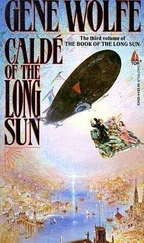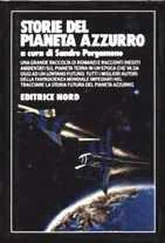Gene Wolfe - Free Live Free
Здесь есть возможность читать онлайн «Gene Wolfe - Free Live Free» весь текст электронной книги совершенно бесплатно (целиком полную версию без сокращений). В некоторых случаях можно слушать аудио, скачать через торрент в формате fb2 и присутствует краткое содержание. Жанр: Фантастика и фэнтези, на английском языке. Описание произведения, (предисловие) а так же отзывы посетителей доступны на портале библиотеки ЛибКат.
- Название:Free Live Free
- Автор:
- Жанр:
- Год:неизвестен
- ISBN:нет данных
- Рейтинг книги:3 / 5. Голосов: 1
-
Избранное:Добавить в избранное
- Отзывы:
-
Ваша оценка:
- 60
- 1
- 2
- 3
- 4
- 5
Free Live Free: краткое содержание, описание и аннотация
Предлагаем к чтению аннотацию, описание, краткое содержание или предисловие (зависит от того, что написал сам автор книги «Free Live Free»). Если вы не нашли необходимую информацию о книге — напишите в комментариях, мы постараемся отыскать её.
Free Live Free — читать онлайн бесплатно полную книгу (весь текст) целиком
Ниже представлен текст книги, разбитый по страницам. Система сохранения места последней прочитанной страницы, позволяет с удобством читать онлайн бесплатно книгу «Free Live Free», без необходимости каждый раз заново искать на чём Вы остановились. Поставьте закладку, и сможете в любой момент перейти на страницу, на которой закончили чтение.
Интервал:
Закладка:
Free Live Free
“The country needs and, unless I mistake its temper, the country demands bold, persistent experimentation.”
—Franklin Delano RooseveltFour Roomers Of War
It was not yet night, though the streets were already dark. A few stores and restaurants had switched on their lights. A neon sign thrusting like an erection from a bar on the corner winked redly at thirsty patrons who were not present. There was rain in the wind, and the feeling that the rain would soon turn to snow.
Stubb swore, rounding the corner. He took off his glasses and wiped their bottle-bottom lenses on the sleeve of his trenchcoat, then swore again as they were spattered with fresh rain. A Checker passed, throwing fine spray at the sidewalk. Stubb entered an alley and walked it with ferocious energy from end to end and back, looking in doorways, occasionally stopping to examine a garbage can, at last emerging where he had come in. Half a block down the street, a fat, blond girl in a white plastic raincoat waved to him, and he nodded almost imperceptibly.
She was waiting for him in the musty little hall, rain trickling from her coat and white plastic boots onto the worn linoleum. “How’d you do?” she asked. She loomed over him, a head taller than he.
“How’d you do?” Stubb said.
“I haven’t yet. I just went out for gum and stuff.”
“You shouldn’t smoke,” he told her. “Screws up your lungs.”
“Yeah,” the fat girl said. “That’s right.” She opened her purse and took out a pack of Viceroys. Two were gone. She pulled out two more. Stubb reached up to light hers, and she smiled.
“Going to be a lousy night,” he told her. “You ought to stay in.”
“I think maybe I will. Till eleven or twelve anyway. You going to watch TV? It’s Hellcats of the Navy .”
Stubb shook his head, drawing on his cigarette.
“You like the oldies almost as much as he does.”
“I saw a piece of it.”
“I wish they’d run The Wizard of Oz again,” the fat girl said. “That’s the one I like. But I could watch this.”
“I’ve got things to do.”
“Okay.”
She waited for him to go up the stair, then toiled after him. The parlor door was half open, but if the three people in the parlor had heard them, they gave no indication of it.
They sat before a television set as they might have sat around a fire. On the small screen, images hardened to harsh lines of black, then spread the shadows of humanity again. The voices of the film murmured like little waves, and like little waves seemed to die.
The most impressive of the three was an old man. He sat in the largest chair and gripped its arms as though for him it were a seat in a plummeting plane. He was bald. He had once been a powerful and perhaps even a fearsome man; now his chest had fallen in, and his blue eyes seemed awash in milk.
The man on his right aimed at a prosperity his check suit did not confirm. The leather of his wingtip shoes was polished and cracked, and his carefully knotted rep tie revealed at the knot an area worn threadbare by the heavy stubble of his chin. His broad mustache and thick hair shone black and oily as fresh paint. A tarnished chain stretched across his vest, ending in an empty pocket; there was a rubber daisy in his lapel.
A young woman in a black toque sat on the old man’s left. Her long-sleeved lace dress suggested Italy or Spain, but there was something of the East in her thin, strong face and dark eyes. Suspended from a silver cord about her neck was a circlet of silver from which three points radiated; it was no bigger than a small coin.
The man with the black mustache asked, “Would you like something, Mr. Free? A glass of sherry, maybe. Or I could make you some coffee.”
The old man seemed not to hear him.
“You may go to the kitchen and take whatever you can find,” the woman said. “He will not object.”
The other man glanced at her, and then (perhaps because he feared his regard had somehow offended her) looked around the room as if taking inventory of its dusty furniture. His eyes, slightly divergent and dryly black, might have been buttons of jet.
“Go on, Mr. Barnes. You are so hungry.”
“Can I bring you something?” the man called Barnes asked.
“For eight days I have fasted,” the woman said.
“Maybe then—”
“Nothing.”
Barnes rose. “I’ll fix tea, if there is any.”
Neither of the others answered, and he went into the kitchen. There he washed a teapot and put a pan of water on the stove. There was a tablespoon of black tea loose in a cannister, and, to his surprise, a little sugar in the sugar bowl. In the refrigerator he discovered a small cube of cheddar, which he ate. When he carried his tray into the parlor again, neither the old man nor the dark woman appeared to have moved.
“You like some, Mr. Free?” Barnes asked. “I brought you a cup.”
The woman said, “How was the cheese?”
For a moment Barnes stared at her. The color drained from his florid face. Then he laughed. “You smelled it,” he said. “Smelled it on my breath. That’s terrific! Listen, Madame Serpentina, I can take a joke as well as anybody. Better, in fact.”
“I cannot,” the woman said.
“Hey, you ought to. There’s nothing in the world better for you, for your health and your whole outlook on life, than a good laugh.”
“I laugh often, but not at jokes.”
Barnes grinned. He had large, square, slightly yellowish teeth, like a horse’s. “That’s because you haven’t seen mine. But if you’ll excuse kind of a personal comment, I’ve been watching you since we got here, and I’ve never seen you laugh.”
“I am laughing now,” the woman said. “My spirit laughs, because I did not come here with you.”
“We both came Monday,” Barnes said. “Answered the same ad. That’s all I meant.”
The woman did not reply, and after several minutes had passed in silence except for the muttering from the old television and the rattle of the rain, Barnes said, “Nice weather.”
For the first time, she turned her head to look at him. “You like this?”
“Sure I do.” Barnes grinned again. “Made three sales today, and selling weather is as good a weather as Ozzie Barnes ever asks for.”
“You have sold nothing, or you would go into the street and buy bread. You are very hungry.”
“I didn’t say I got any money. I got orders. Tomorrow I’ll send them in, and when the merchants pay, I’ll get my commission. I do like this weather, though. You probably don’t believe that.”
“Belief insults the mind. A thing is so or it is not.”
“Say, that’s good. I’ll have to remember it. But I like this weather—not many customers coming in, which is always good for a salesman, and then, too, some merchants feel a little sorry for me. That makes them readier to listen. The whole secret of selling, let me tell you, is just getting your customer to listen to what you’re saying. Nine times out of ten, a man will stand there and stare at you like he’s hearing every word, but what he’s really listening to is something he told himself a long time ago, or maybe just his wife telling him not to lay in any more stock. He no more hears you than Mr. Free here does.”
The woman said, “He hears.”
“Okay, but he doesn’t pay attention.”
“That is so. We are to him what that,” the woman’s eyes moved briefly toward the television set, “is to us. We are that to me also.”
“Is he following the story, you think?” Barnes’s voice dropped to a whisper. “I wouldn’t want to bother him.”
“Less than you. Less even than I.”
Читать дальшеИнтервал:
Закладка:
Похожие книги на «Free Live Free»
Представляем Вашему вниманию похожие книги на «Free Live Free» списком для выбора. Мы отобрали схожую по названию и смыслу литературу в надежде предоставить читателям больше вариантов отыскать новые, интересные, ещё непрочитанные произведения.
Обсуждение, отзывы о книге «Free Live Free» и просто собственные мнения читателей. Оставьте ваши комментарии, напишите, что Вы думаете о произведении, его смысле или главных героях. Укажите что конкретно понравилось, а что нет, и почему Вы так считаете.










